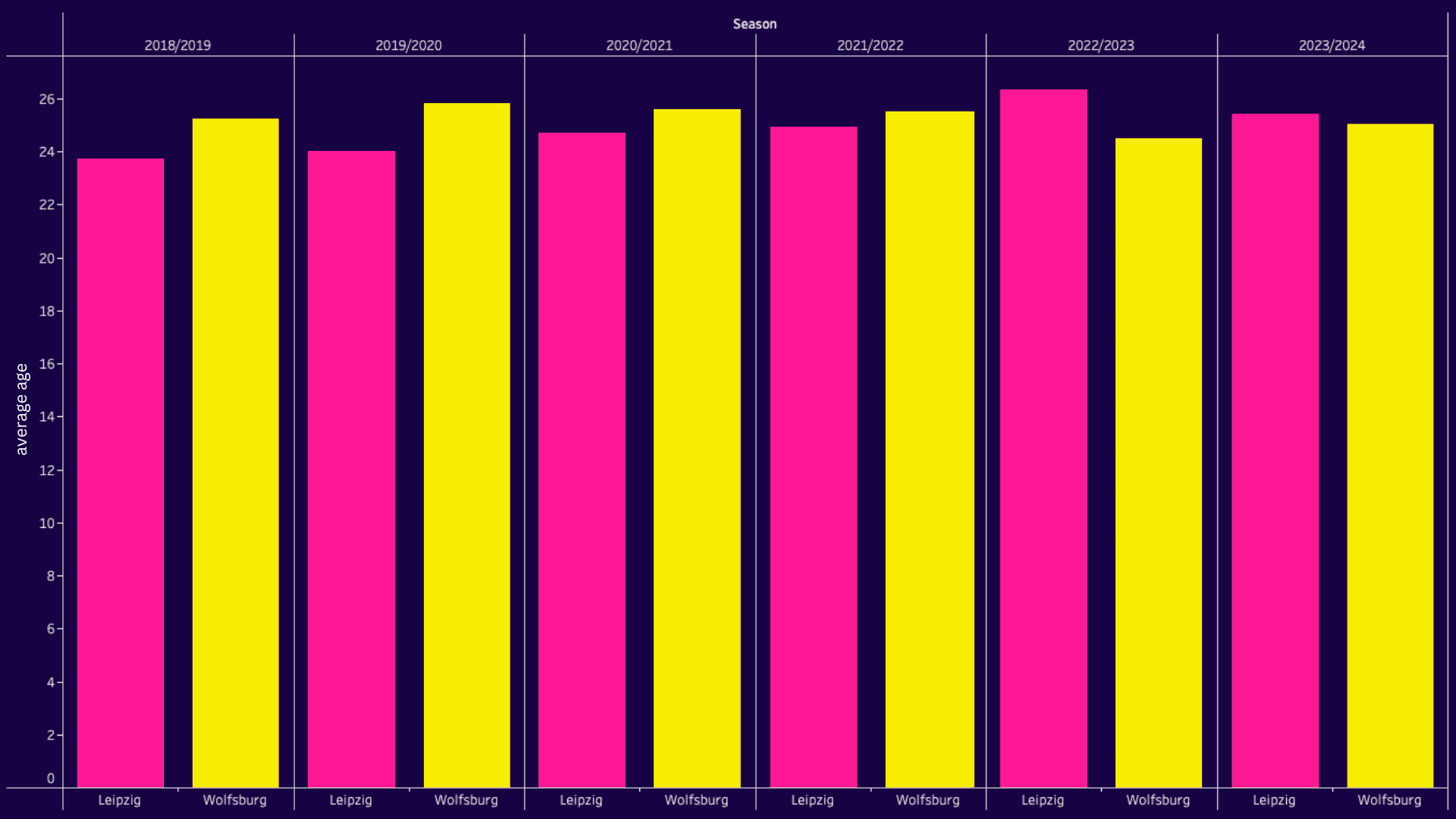Marcel Schäfer bids farewell to VfL Wolfsburg, signalling a significant shift in his career trajectory. The 39-year-old has expressed his desire to leave his position as Managing Director for Sports, prompting discussions with RB Leipzig about potentially assuming the role of Sporting Director.
Amidst these developments, Schäfer has informed Frank Witter, the chairman of the supervisory board at Wolfsburg, of his intention to terminate his existing contract prematurely in pursuit of new opportunities. Consequently, it has been agreed upon that Schäfer will immediately step away from his responsibilities. Sebastian Schindzielorz, the Sports Director, will assume a more prominent role in overseeing the sporting affairs of the club, working closely with head coach Ralph Hasenhüttl. The focus now shifts entirely to upcoming sporting tasks as the club navigates through this transition period.
Witter expressed his regret over the departure of Marcel Schäfer, emphasising his significant contributions to the club during his tenure. He acknowledged the emotional resonance of this decision, noting that Schäfer’s departure marks the end of an era. However, Witter also stressed that Schäfer will always remain an integral part of the VfL Wolfsburg family, with their shared history serving as a testament to their enduring bond.
Amidst speculation and media reports, it has been widely reported that Schäfer has received an offer from Bundesliga rival RB Leipzig. This potential move signifies a new chapter in Schäfer’s career, one that could see him bring his expertise and strategic vision to a new environment. As we delve into this recruitment analysis, we will explore the strategies and insights that Schäfer brings with him, shedding light on his potential impact on RB Leipzig’s future endeavours.
Director Profile
Marcel Schäfer, born on June 7, 1984, in Aschaffenburg, is a former German professional footballer turned sports executive. Renowned for his versatility and leadership qualities, Schäfer enjoyed a distinguished career both on and off the field.
His journey in professional football began at TSV 1860 München, where he honed his skills and laid the foundation for a successful career ahead. From 2003 to 2007, Schäfer represented TSV 1860 München, showcasing his talent and dedication on the pitch.
In 2007, Schäfer made a significant move to VfL Wolfsburg, where he truly made his mark as a player. Over the course of a decade, from 2007 to 2017, Schäfer became an integral part of the VfL Wolfsburg squad, earning plaudits for his consistent performances and unwavering commitment to the club’s success.
During his time at Wolfsburg, Schäfer also had the privilege of representing the German national team from 2008 to 2010, adding an international dimension to his illustrious career.
In 2017, Schäfer embarked on a new chapter in his footballing journey, joining the Tampa Bay Rowdies in the United States. Despite the change in scenery, Schäfer continued to exemplify his professionalism and passion for the game, leaving a lasting impact on the clubs he represented.
Off the field, Schäfer’s thirst for knowledge and desire to contribute to the world of sports led him to pursue further education. In 2007, he completed an 18-month distance learning course in sports management, followed by another course in sports marketing, showcasing his commitment to personal and professional development.
Schäfer’s transition from player to executive was seamless, as he returned to VfL Wolfsburg in 2018 as the youngest sporting director in the Bundesliga. His astute decision-making and strategic vision played a pivotal role in shaping the club’s direction and fostering a culture of success.
In February 2023, Schäfer ascended to the position of Managing Director for Sports at VfL Wolfsburg, assuming greater responsibility and influence within the organisation. His tenure at the club was characterised by innovation, determination, and a relentless pursuit of excellence.
Now, as he ventures into new territory, with talks of joining RB Leipzig as their Sporting Director, Schäfer’s wealth of experience and unparalleled expertise position him as a formidable force in the world of football management.
Recruitment Strategy
Marcel Schäfer’s recruitment strategy during his tenure at VfL Wolfsburg was marked by a clear shift in focus and approach, driven by the club’s desire to consolidate financially while simultaneously stabilising its sporting performance. Following consecutive seasons of relegation playoffs in 2017 and 2018, which posed significant challenges for the club, there was a concerted effort to restructure and revitalise Wolfsburg’s footballing operations.
Central to Schäfer’s strategy was recognising the importance of having a strong partner backing the club. In Wolfsburg’s case, the partnership with Volkswagen provided invaluable support, both financially and infrastructurally. This partnership served as a solid foundation for the club’s ambitions, allowing for investment in player recruitment and development.
Similarly, at RB Leipzig, Schäfer would find a similar dynamic with Red Bull, which provides substantial financial resources and a vast scouting network. The backing of such a prominent ownership group not only ensures financial stability but also grants access to extensive scouting resources, facilitating the identification and acquisition of talent from across the globe.
Since Schäfer’s appointment in 2018, VfL Wolfsburg has made significant investments in player recruitment, totalling €286.93 million across 101 new signings. While this resulted in a substantial outlay, the club also generated €143.78 million from 101 player sales during the same period. Despite the negative overall balance of—€143.15 million in transfers, it underscores Wolfsburg’s commitment to reshaping and strengthening the squad.
Schäfer’s tenure also witnessed a strategic shift towards a younger, more dynamic squad composition, characterised by integrating talented youth prospects alongside experienced professionals. This emphasis on youth development and talent acquisition aligns with Wolfsburg’s long-term vision of building a sustainable and competitive team for the future.
Notably, the current squad’s market value has experienced a significant increase under Schäfer’s leadership, rising from €181.13 million to €226.20 million. This notable appreciation in squad value reflects the successful execution of recruitment strategies and the club’s ability to maximise the potential of its players.
As Schäfer considers a potential move to RB Leipzig as their Sporting Director, his experience and track record at Wolfsburg position him as a strong candidate further to enhance the club’s recruitment and development processes. With a proven ability to navigate the complexities of modern football management, Schäfer’s strategic acumen and forward-thinking approach could prove instrumental in shaping Leipzig’s future success.
Focus on Youth
Marcel Schäfer’s tenure at VfL Wolfsburg was marked by a clear emphasis on recruiting and developing young players. This was underpinned by a philosophy of nurturing talent and maximising their potential for profitable resale. Schäfer advocated for patience with young players, recognising the importance of allowing them to make mistakes and learn from them without fear of immediate repercussions, such as being benched or excluded from the squad.
The strategic approach adopted by Wolfsburg involved signing young, hungry players with significant potential for development, with the ultimate aim of selling them for substantial transfer fees in the future. This approach was exemplified by the club’s decision to offload Felix Nmecha to Borussia Dortmund and Micky van de Ven to Tottenham Hotspur during the last summer transfer window. Van de Ven’s transfer, in particular, became one of Wolfsburg’s most lucrative sales, following in the footsteps of Kevin de Bruyne.
Schäfer highlighted the advantage of Wolfsburg’s location as a conducive environment for player development, citing the city’s tranquillity and supportive atmosphere as beneficial factors for nurturing young talent. Despite occasional scepticism from outsiders, Schäfer believed that Wolfsburg’s environment offered a conducive setting for player growth and development.
The focus on recruiting and developing young players aligns closely with the recruitment strategy employed by RB Leipzig, a club renowned for prioritising youth and fostering talent. In Leipzig’s case, they have historically fielded one of the youngest teams in the Bundesliga, often targeting players under the age of 23 for recruitment. However, in recent years, there has been a departure from this philosophy, as evidenced by the rising average age of the squad.
Comparing the average squad ages of Wolfsburg and Leipzig over recent seasons reveals interesting insights into their respective approaches to squad composition. While Wolfsburg consistently maintained a youthful squad, ranking among the youngest in the league, Leipzig’s average squad age has shown some fluctuations, with periods of youth-centric recruitment interspersed with deviations from this strategy.

With Marcel Schäfer potentially joining RB Leipzig as their Sporting Director, there is an opportunity for the club to realign with their philosophy of prioritising young talent. Schäfer’s experience and expertise in recruiting and developing young players could prove invaluable in steering Leipzig back towards a youth-driven approach, similar to the strategy he implemented at Wolfsburg. By leveraging the club’s resources and scouting network, Schäfer could help Leipzig build a competitive team while remaining financially prudent and positioning the club for long-term success.
Target Markets
Marcel Schäfer’s strategic approach to player recruitment and sales at VfL Wolfsburg was characterised by a targeted focus on specific markets, reflecting his keen understanding of player dynamics and market trends. This approach aligns closely with the target markets identified by RB Leipzig, making Schäfer well-equipped to transition seamlessly into a similar role at the Leipzig club.
In terms of player arrivals, Schäfer’s emphasis on sourcing talent from Germany, France, and Austria mirrors the target markets favoured by RB Leipzig. This strategic alignment indicates that Schäfer possesses valuable market knowledge directly relevant to RB Leipzig’s recruitment strategy. Germany emerged as the primary source of arrivals at Wolfsburg, with a significant portion of 31 players, including 16 from Wolfsburg’s own youth academy, contributing to the squad. France (6) and Austria (4) also featured prominently, with a combined total of 10 arrivals from these countries. Additionally, Schäfer’s recruitment efforts extended to Italy (3), the Netherlands (3), and Portugal (3), with an honourable number of players sourced from each of these markets.
Conversely, when it comes to player departures, Schäfer’s tenure at Wolfsburg saw a notable concentration of sales in Turkey (5) and Germany (47). The attraction of high salaries in the Turkish league made it a favourable destination for departing players from Wolfsburg, while Germany served as a primary market for outbound transfers. However, with Schäfer potentially transitioning to RB Leipzig, there is an opportunity to diversify the target markets for player sales. By focusing on markets in the top five European leagues, including the UK, Italy, France, and Spain, in addition to Germany, RB Leipzig optimises its player sales strategy and capitalises on the lucrative transfer markets in these countries.
Schäfer’s targeted approach to player recruitment and sales at VfL Wolfsburg reflects a deep understanding of market dynamics and player development strategies. His alignment with RB Leipzig’s target markets positions him as an ideal candidate to contribute to the club’s recruitment efforts and further strengthen their squad composition. With Schäfer’s expertise and experience, RB Leipzig could enhance their player acquisition strategy and maintain their competitive edge in the Bundesliga and beyond.
Conclusion
Marcel Schäfer’s experience as both a professional football player and a sports executive, coupled with his proven track record in player recruitment, development, and strategic planning, makes him an ideal fit for the role of Sporting Director at RB Leipzig. His tenure at VfL Wolfsburg saw him implement a targeted recruitment strategy, focusing on young, talented players from specific markets, which aligns closely with RB Leipzig’s philosophy.
Schäfer’s emphasis on developing and nurturing young talent, as evidenced by Wolfsburg’s focus on their own youth academy and signings from countries like Germany, France, and Austria, resonates with RB Leipzig’s commitment to building a competitive squad with a strong foundation of emerging talent. Additionally, his ability to navigate the transfer market, maximise player value, and identify strategic opportunities for player sales further underscores his suitability for the role.
Moreover, Schäfer’s understanding of RB Leipzig’s target markets and his alignment with the club’s vision and philosophy provide a seamless transition into the role of Sporting Director. With his market knowledge, leadership skills, and strategic acumen, Schäfer has the potential to drive RB Leipzig’s continued success both domestically and on the European stage.





Comments